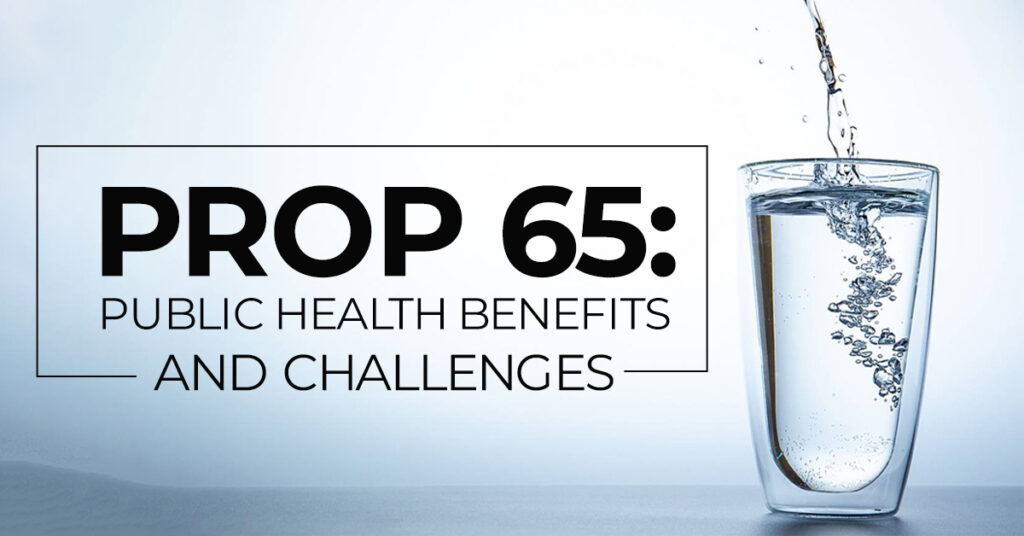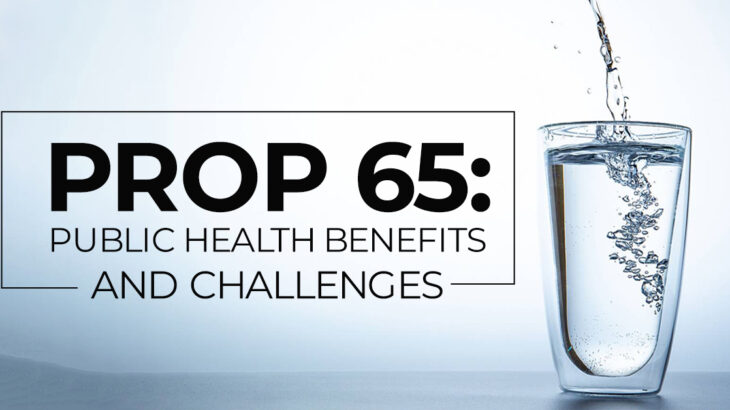
The Safe Drinking Water and Toxic Enforcement Act of 1986, or Proposition 65, is a California law that tries to protect the state’s drinking water sources from contamination by substances known to cause cancer, birth defects, or other reproductive harm, as well as to educate the public about exposure to these substances. It mandates that companies notify Californians of any substantial exposure to chemicals that can result in cancer, birth defects, or other reproductive harm.
Public Health Benefits
Increased Awareness:
The existence of potentially dangerous chemicals in consumer goods, workplaces, and the environment has been brought to the public’s attention via Proposition 65. Customers are encouraged to make knowledgeable decisions about the goods they use and the locations they visit as a result of this increased understanding.
Prevention of Exposure:
Businesses are required by law to give customers sufficient notice of the possibility of being exposed to hazardous chemicals. This lowers the possibility of negative health impacts by assisting people in avoiding or minimizing their exposure to these chemicals.
Encouraging Safer Practices:
Proposition 65 pushes companies to look for safer ways to manufacture goods and processes rather than utilizing hazardous chemicals. This may result in the creation and acceptance of safer substitutes, lowering the general level of exposure to dangerous compounds.
Legal Accountability:
The legislation establishes a framework for holding companies liable for exposing people to dangerous chemicals. This may discourage businesses from utilizing these substances or provide them with incentives to reduce the risks involved with their use.
Challenges
Complexity of Compliance:
Because of the intricate requirements for identifying and alerting people about potentially harmful chemicals, businesses may find it difficult to comply with Proposition 65. This intricacy may cause misunderstandings and disagreements regarding compliance requirements.
Economic Impact:
Proposition 65’s detractors claim that firms must bear heavy costs as a result of compliance requirements, legal fees, and possible sales losses brought on by customers’ worries about warnings. These expenses may deter innovation and economic expansion and disproportionately impact small enterprises.
Risk Communication:
It’s possible that the present warning system isn’t doing a good enough job of conveying the true danger of being exposed to particular substances. This may result in over-warning or alarmism, which could damage warnings’ credibility and lessen their ability to improve public health.
Limited Enforcement Resources:
In order to enforce Proposition 65, private persons and government organizations must file lawsuits against companies that violate the law. Inadequate funding and competing priorities could lead to uneven enforcement and gaps in public health protection.
Overall, Proposition 65 has helped raise awareness and lower exposure to dangerous chemicals in California; but, in order to maximize its efficacy in safeguarding the public’s health while limiting unintended repercussions for companies and consumers, it will be necessary to solve certain obstacles. Overcoming these obstacles will necessitate constant communication, cooperation, and adjustment to guarantee Proposition 65’s continued efficacy. Contact us today to know more about our Conflict mineral compliance, Prop 65 services and other product environmental compliance regulations. Understand how you can become compliant faster, better, and cost-effectively.




 +1.585.935.7123
+1.585.935.7123 +91-804-148-6861
+91-804-148-6861